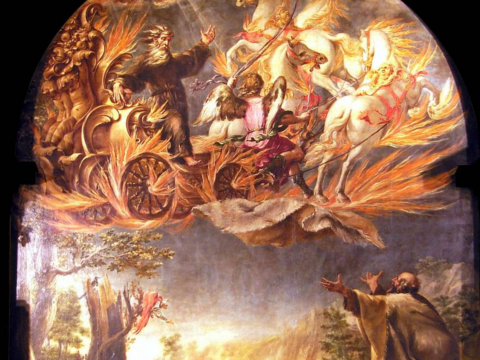
And we believe and are sure that thou art the Christ, the Son of the living God.
John 6:69
Faith must aid our understanding rather than the other way around, as demonstrated in the case of Peter in John 6:69. Peter declared, “And we believe and are sure that thou art the Christ, the Son of the living God.” Notice that he said, “We believe and are sure,” not “We are sure and believe.” Belief comes first, and certainty follows; by believing, we attain assurance. Many individuals desire to be certain that Christ died for them, that their sins are forgiven, and that they are God’s children. They attempt to establish this certainty through various arguments and by examining the effects, seeking to identify specific indicators. However, the Apostle’s approach here should be our primary one: “We believe and are sure.” We should commit our souls to the truth of God’s word and, through belief, attain certainty.
Now, as for faith, it provides evidence and clarity. As stated in 2 Timothy 1:12, “We know in whom we have believed,” and the mercies of God in Christ are referred to as “The sure mercies of David” in Acts 13:34. Faith is not a mere notion, imagination, or conceit; rather, it is what makes everything sure and certain for the soul. I should address a question here: Can there be faith without assurance, that is, without assurance of one’s own salvation through Christ?
Certainly, it would be a significant error to equate faith with the riches of faith, which is assurance. The Scriptures refer to assurance as the riches of faith. Just as a person can conduct their trade without being rich, so too can one be a believer without being rich in assurance. Assurance is the cream of faith, the riches of faith. I should have explained how far faith can serve as evidence, even in the presence of doubt. Only this much: the assurance we gain through faith, by relying on the Word and drawing conclusions from divine principles (which I should have elaborated on — how faith transforms things into evidence through divine and spiritual principles, and what these principles are, but we cannot delve into this now), is an evidence to the extent that the soul can confidently rely on it, as I mentioned earlier. Faith is a foundation upon which the soul can confidently venture. As one martyr stated, “Though I cannot argue for the truth, I can die for the truth.” When faith arrives with a convincing light, even if doubts, fears, and temptations persist, the soul can trust and depend on it. The soul resolves, “If I perish, I will perish here. Let the whole world say what they will; I have found this to be the way, and regardless of the outcome, I will not turn back.” In this way, faith overpowers the soul and carries it through opposition, and thus, faith serves as evidence.
Many things should have been addressed by way of application.
Firstly, if faith is evidence for other things and makes them visible, then it can also serve as evidence for itself. I mean this: it is possible for a soul to know its own good condition and its connection to Christ solely through the work of faith itself. Even if it cannot presently argue a posteriori from the effects of faith, it can argue a priori; faith can provide evidence for itself. Many Christians continue to doubt because they believe they must have evidence of their faith through certain effects that follow their faith, and until then, they can have no comfort. It is true that where true faith exists, there will be fruits and effects of it. However, if you could grasp this Gospel mystery and find evidence within faith itself, you would arrive at comfort more quickly, and it is a much safer approach. When you have doubts about your condition, fear that your sins are not forgiven, and doubt your connection to Christ, the way to overcome these doubts and fears is to renew the act of faith itself. Present to your souls the riches of God’s grace in the Lord Jesus and see if it draws your souls to believe. Even if your hearts do not respond immediately, present these things to your souls repeatedly, and do not turn from renewing the acts of faith to dwelling on your corruptions. Instead, look upward repeatedly, and through this process of viewing, a power will arise to draw your heart to believe. Just as the presentation of the law has the power to terrify and frighten, the presentation of the glorious aspects of the Gospel has the power to draw out faith. You must renew the initial act of your faith, to embrace Christ and rely on God’s grace in Christ. Even if you find various corruptions within your heart and are tempted to think, “Should someone as polluted and defiled as I am cast myself upon God’s grace in Christ?” seize Christ nonetheless. You have as much reason to do so as anything else, and this must be your course: to repeatedly renew this initial act of faith. You may say, “But my doubts and fears persist.” If you want evidence, repeat it a thousand times over, and eventually, evidence of the act of faith itself will emerge. You may argue that this could be seen as presumption to cast oneself upon God’s free grace in Christ. I reply, this is not presumption because the very act itself grants you a right to everything in God and Christ. Presumption occurs when a person takes something they have no right to, but if an action grants them a right, it is not presumption. You might argue that this is a licentious way and allows for liberty. Do not misjudge faith. When you, even in the absence of sight and sense and without reason for doing so, venture yourself upon God’s grace in Christ, it is the most glorious work you can perform in this world. Even if you were able to overcome all your corruptions and perform the greatest imaginable service, it would not be as glorious as this. It is also the most difficult thing in the world; therefore, it is not a doctrine of liberty. A soul that can overcome all the difficulties of faith, conquer its boundless guilt and the terrors of the law, and venture upon God’s free grace in Christ despite all obstacles, can overcome any difficulty in the world.
If you wish to magnify God as a Christian, this is the only way.
Jeremiah Burroughs. The Saint’s Treasury.



